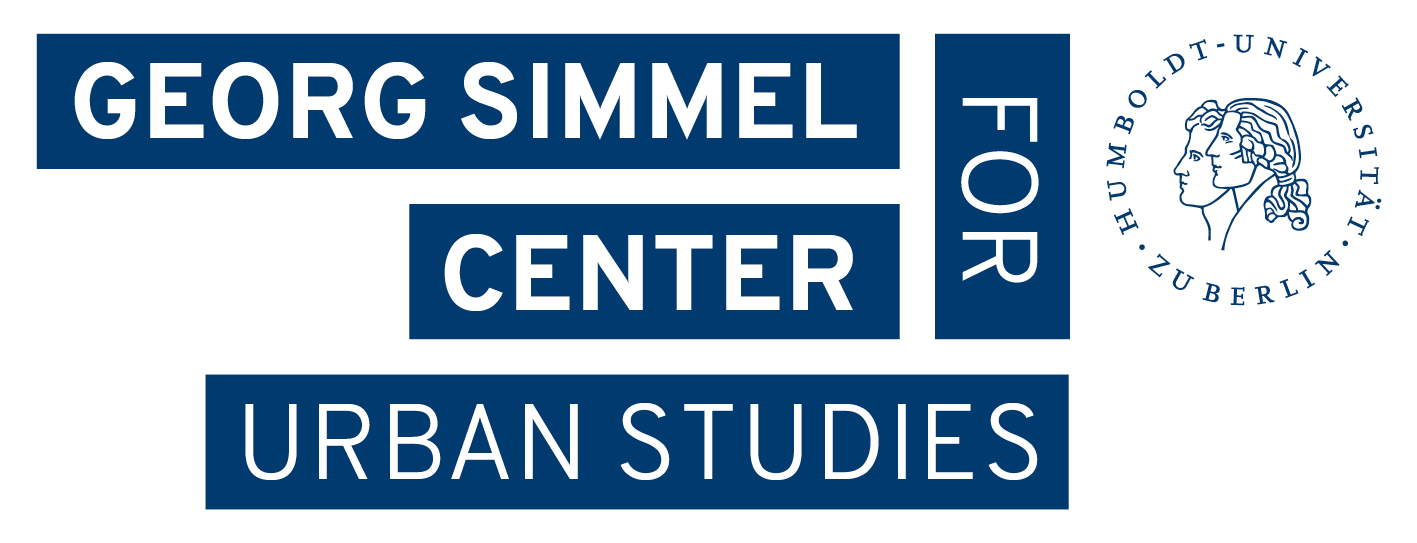GSZ Newsletter February 2017
Mapping in the Intersection of Ethnography and Geography
Topics:***The Urban Ethnography Lab***Humboldt University: Closing presentations “green city – fair city?”***Bauhaus University Weimar: Job vacancy as research assistant***DIfU: Urban density: Promis of urbanity or stress factor?***Oslo School of Architecture and Design: PhD vacancy*** Urania: Berlin Air – Parisian Life***GSZ-Graduate Studies Group***
Explore and Experience the Urban Field
Urban Anthropology understands cities as laboratories. One important systematic research concept is Ethnography and its holistic approach to research was developed by anthropologists in order to understand people within their social, spatial and cultural urban contexts. Ethnography offers a toolbox of various interdisciplinary qualitative methods - mapping can be seen as one example.
Mapping in the Intersection of Ethnography and Geography
Mapping is a research tool to make social and spatial practices, space and the interaction between spaces and practices visual. By mapping the urban practice and the social synergies of space researchers can recognize data: Mapping can be understood as a process during your research to discover and to structure the spaces and social interactions and to find the blind spots of your qualitative data. The map is one piece of data to make the invisible or the obvious visible. With this data you can return and reflect and enhance awareness for conflicts, negotiations, misunderstandings, power relations and accountabilities in your field of research. One can observe a renaissance in critical geography and other cross-disciplinary research, rethinking the concepts of maps and cartography. Especially Dennis Wood offers an interesting perspective on these debates and reflects on the heritage of critical cartography. Wood refers to techniques for uncovering the subjective, ideological and powerful modes. He further offers a genealogy of "countermappings", which refers to efforts of mapping "against dominant power structures". As Wood points out, maps have "fingerprints" which are not visible in the first place. Maps are an accumulation of multi-layered stories about one neighborhood, for example its social class and cultural rituals. Maps tell stories of how we understand and define the places we call home (Wood 2012).
Within the Urban Ethnography Lab we want to enhance mapping methods in the intersection of ethnography, geography, art and design.
Urban Ethnography Lab
The Urban Ethnography Lab is an initiative proposed by graduate students from the University of Toronto’s Ethnography Lab and Humboldt University’s Georg Simmel Center for Metropolitan Studies and the Department of Social- and Cultural Geography from Humboldt-University of Berlin. For further information visit https://www.gsz.hu-berlin.de/de/gsz/en/gsz/internationales-en/urban-ethnography-lab/urban-ethnographylab?set_language=en
(Carolin Genz, Geographical Institute, Humboldt-University at Berlin)
References and further readings:
Lynch, K. (1960). The image of the city. Cambridge: M. I. T. Press.
Wood, Dennis (2010): Rethinking the power of maps. The Guilford Press, New York and London.
Wood, D. (1992): The Power of Maps. New York: The Guilford Press.
Wood, Dennis (2012): The Anthropology of Cartography. In Les Roberts' Mapping Cultures: Place, Practice, Performance, Basingstoke (UK), pp. 280-303.

Green city – fair city?
13.02.2017 | 4pm – 6pm
What is the meaning of “public sphere”? How do different actors access this sphere? How do they justify their claims? How are locals involved? Students of law, agricultural sciences, geography, and resource management have dealt with those questions for the past semester. In order to answer them, they accompanied projects linked to the International Garden Show 2017 in Marzahn-Hellersdorf scientifically and supported them. At the closing event the main results from the projects will be presented and discussed.
http://www.feeding-berlin.de/wp-content/uploads/2017/01/Einladung_Abschluspra%CC%88sentation_WS-201617-.pdf

Job vacancy as research assistant at the Bauhaus University Weimar
Deadline: 13/02/2017
The Bauhaus University Weimar announces the vacancy of two jobs as research assistants at the chair of sociological urban research at the faculty of architecture and urban studies with the aim of further qualification of one’s scientific abilities. Both positions are temporally limited for three years. One of the positions is a 60-percent-position, the other one is part-time (50 percent). The university is looking for applicants, who are interested in supporting the professor in research, project work and administrative tasks and committee work and preparing and doing interdisciplinary (party in English) teaching.
http://www.uni-weimar.de/de/universitaet/aktuell/stellenausschreibungen/a0110
http://www.uni-weimar.de/de/universitaet/aktuell/stellenausschreibungen/a0113/

DIfU: Urban density: Promis of urbanity or stress factor?
15.02.2017|5 pm
Given the shortage of space and the residential influx into big cities densification of urban space is one of the polarizing discourses in the urban present. If external urban development on a large scale is to be avoided, a better utilization of the existing space is inevitable. This would have implications for noise control, construction height, mix of uses, and the green spaces amongst other things. When does high density stand for an urban quality and at what point will the quality of life decline? This question is to be discussed in the DIfU-Dialogue.
https://difu.de/veranstaltungen/2017-02-15/staedtische-dichte-urbanitaetsversprechen-oder.html

PhD vacancy at the Oslo School of Architecture and Design
Deadline: 28/02/2017
The Oslo School of Architecture and Design (AHO) announces the vacancy of one PhD fellowship for a period of three years, starting in September of this year, at the Institute of Form, Theory and History. The AHO is looking candidates who are aiming to explore themes within urban preservation, i.e. building heritage questions of urban significance, framed in relation to the city as an arena for heritage debates.
https://www.jobbnorge.no/ledige-stillinger/stilling/132333/phd-fellowship-in-building-heritage

Urania: Berlin Air – Parisian Life
9.02.2017|5.30 pm
Berlin and Paris are partner cities. Both metropoles have repeatedly inspired each other. Both citie’s wellsprings are rivers, here the river spree, there the Seine. The big boulevards Unter den Linden and Champs-Elysées refer to each other, as well as the new built city palace in Berlin and the former Tuileries Palace in Paris. Unda Hörner will be reporting about the relations and parallels in urban planning and art history between Berlin and Paris.
http://www.urania.de/berliner-luft-pariser-leben

GSZ-Graduate Studies Group
If you are a post-graduate student in the field of metropolitan studies, currently living in Berlin and looking for an interdisciplinary discussion in the field of urban or metropolitan studies - please contact the GSZ Graduate Studies Group. Contact: Marco Copercini (graduates@gsz.hu-berlin.de).
